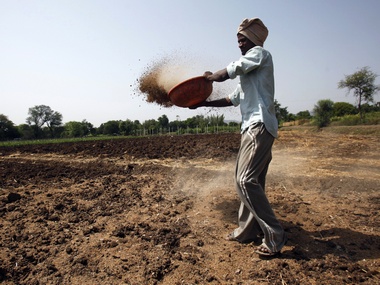New Delhi: The government on Wednesday approved nutrient-based subsidy rates for phosphatic and potassic (P&K) fertilisers for the current fiscal, entailing an estimated burden of Rs 22,186 crore on the central exchequer. Total subsidy outgo is estimated to rise by 5-7 percent this fiscal year, the government said. However, the new subsidy rates for individual nutrients – nitrogen, phosphorus, potash and sulphur – in the current fiscal are lower than their respective rates in 2019-20. A decision in this regard was taken at the meeting of the Cabinet Committee on Economic Affairs (CCEA) headed by Prime Minister Narendra Modi.
#MarketAtClose | Fertiliser shares gain on cabinet nod to up subsidy on Phosphatic fertiliser by 5% pic.twitter.com/m4311Rfwge
— CNBC-TV18 (@CNBCTV18Live) April 22, 2020
“The CCEA has given its approval for fixation of nutrient-based subsidy (NBS) rates for phosphatic and potassic (P&K) fertilisers for 2020-21. The expected expenditure for release of subsidy on P&K fertilisers during 2020-21 will be Rs 22,186.55 crore,” Information and Broadcasting Minister Prakash Javadekar told reporters. There is a 5-7 percent increase in the subsidy amount, he said. The subsidy on P&K fertilisers is being governed by the nutrient-based subsidy (NBS) scheme with effect from April 2010. The subsidy for nitrogen has been fixed at Rs 18.78 per kg, phosphorous at Rs 14.88 per kg, potash at Rs 10.11 per kg and sulphur at Rs 2.37 per kg for the current financial year, the fertiliser ministry said in a statement. For 2019-20, the subsidy for nitrogen was Rs 18.90 per kg, phosphorous Rs 15.21 per kg, potash Rs 11.12 per kg and sulphur Rs 3.56 per kg. The CCEA also approved the inclusion of a complex fertiliser namely ammonium phosphate (NP 14:28:0:0) under the NBS scheme. In its revised budget estimates, the government has allocated Rs 26,368.85 crore for nutrient-based subsidy for 2019-20 fiscal. The government is making available fertilisers, namely urea and 21 grades of P&K fertilisers to farmers at subsidised prices through manufacturers/importers. In 2010, the government had launched the NBS programme under which a fixed amount of subsidy, decided on an annual basis, is provided on each grade of subsidised phosphatic and potassic (P&K) fertilisers, except for urea, based on the nutrient content present in them. The retail prices of non-urea fertilisers such as Di-ammonium Phosphate (DAP), Muriate of Potash (MoP) and NPK are decontrolled and are determined by manufacturers, while Centre gives a fixed subsidy each year. In case of urea, the government fixes the maximum retail price. The difference between the production cost and the MRP is reimbursed to manufacturers.


)

)
)
)
)
)
)
)
)



